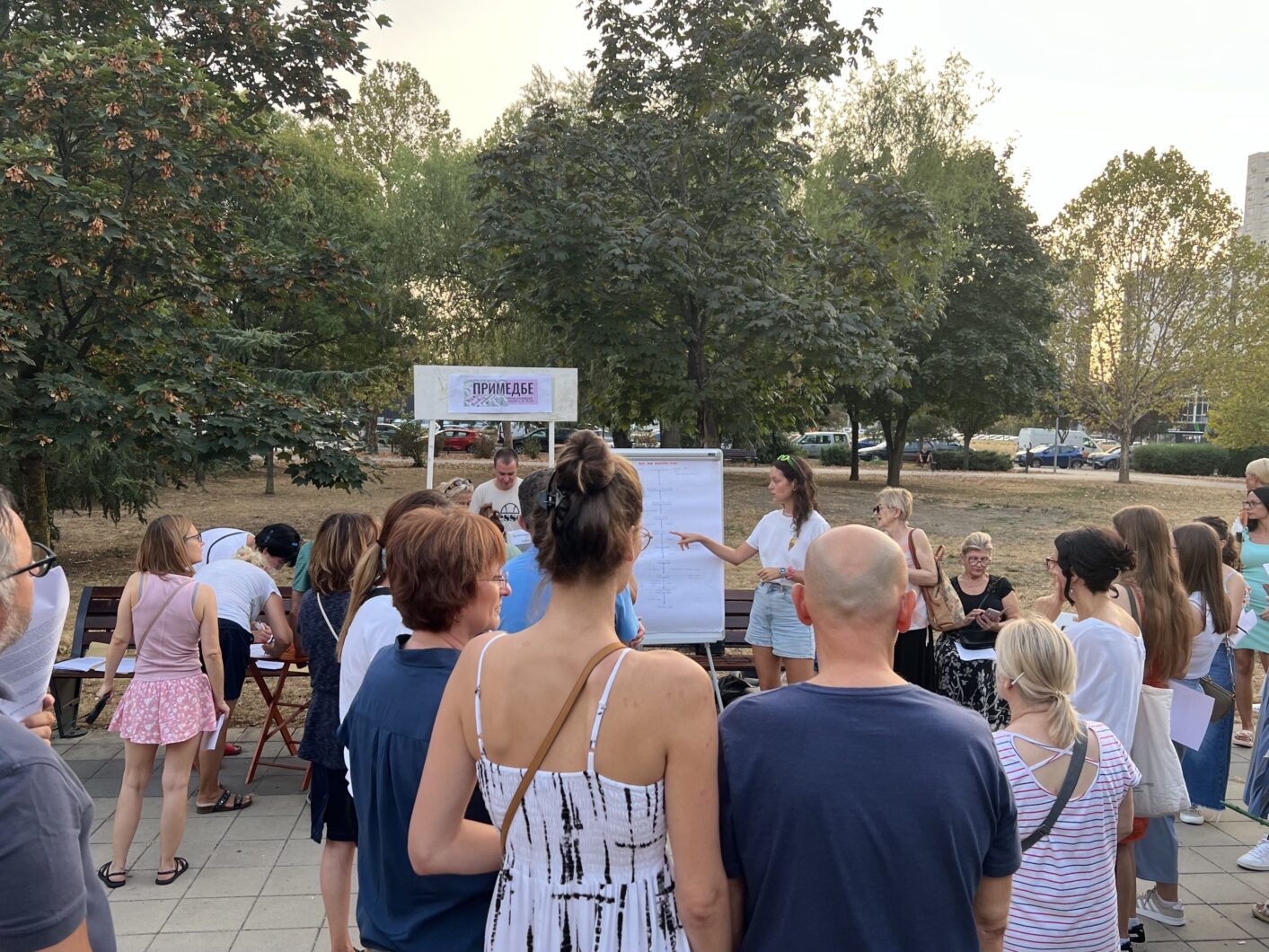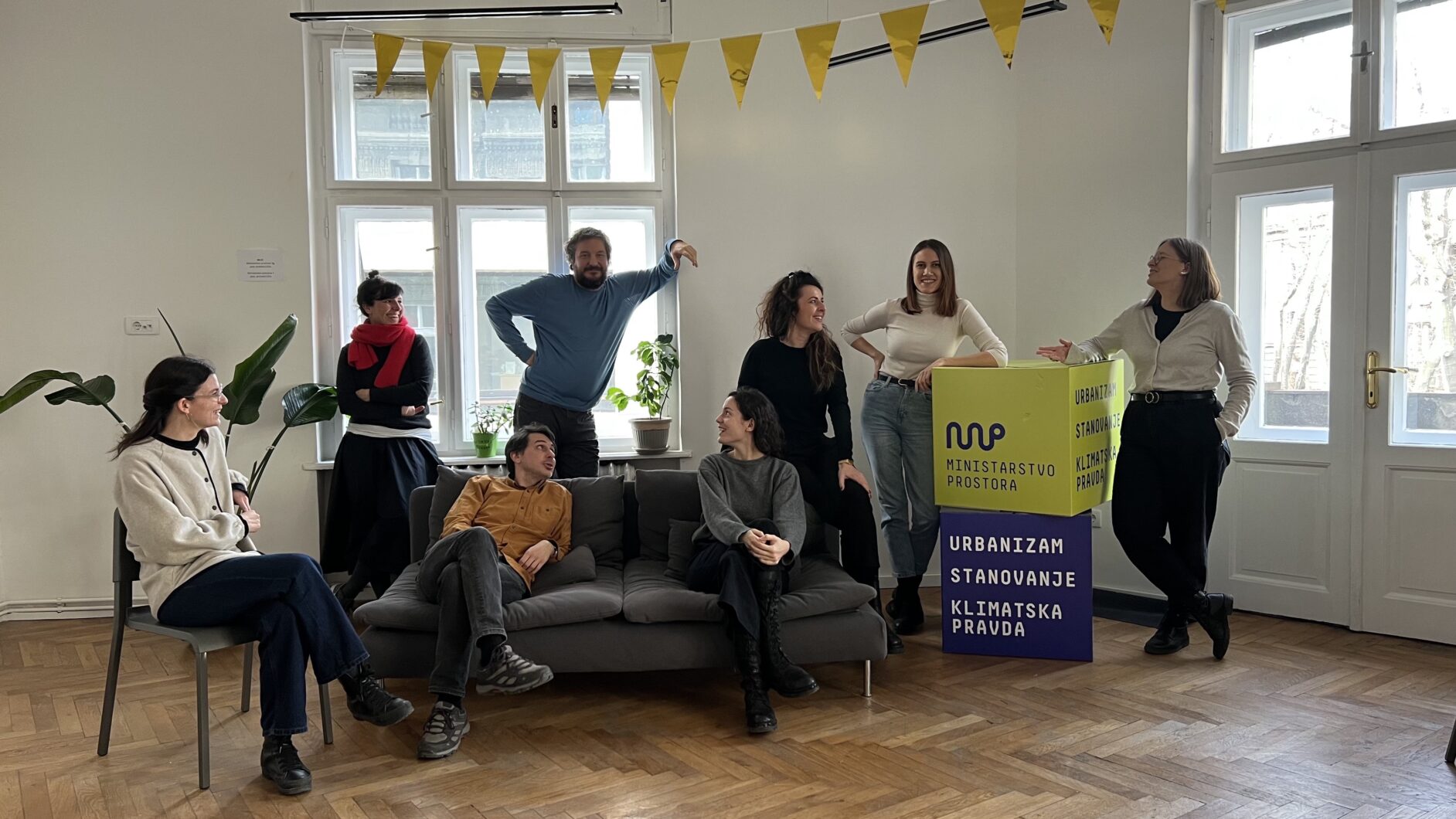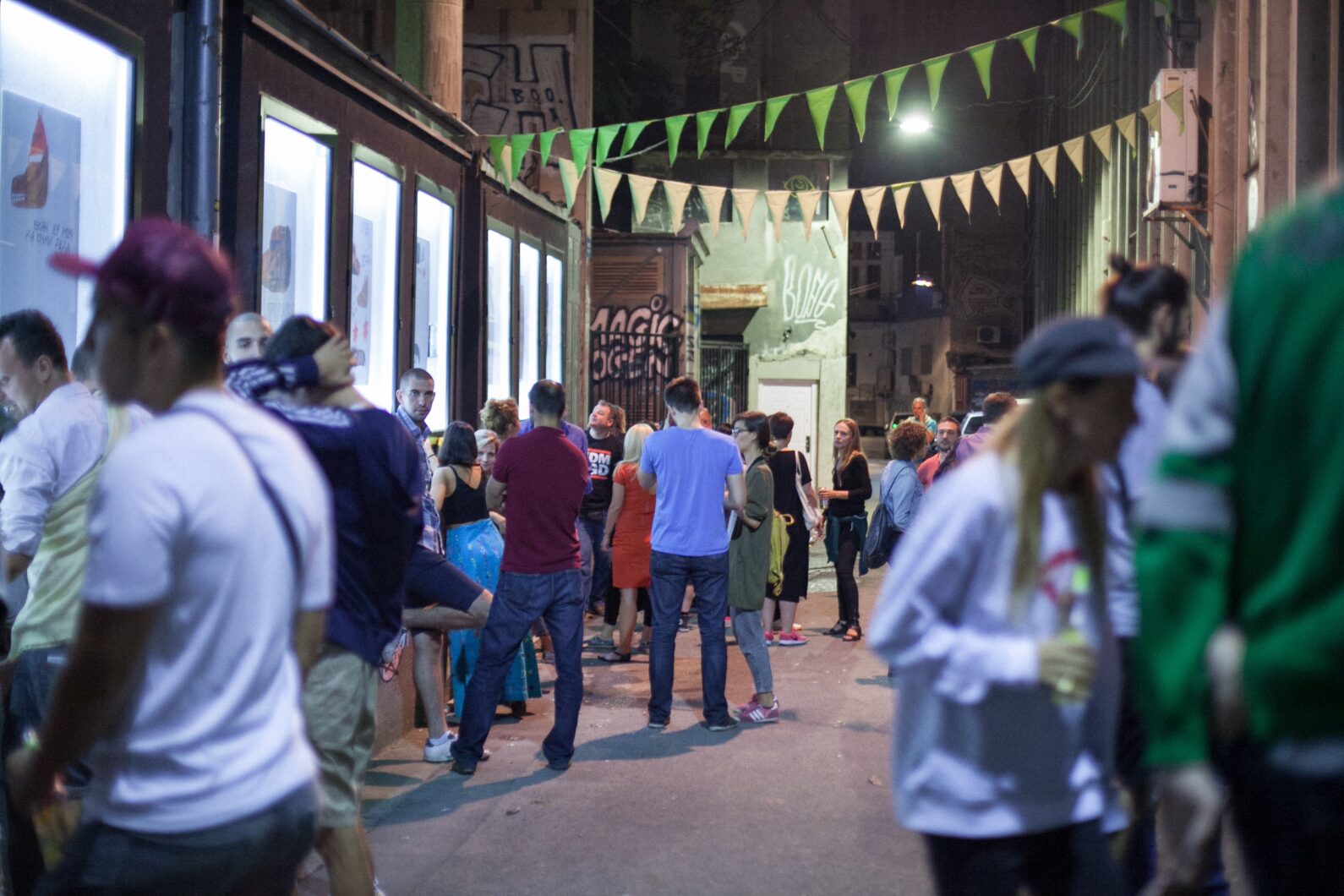Ministry of Space
Ministry of Space fosters equitable urban development through participatory planning, activating unused spaces, and addressing global challenges like housing and climate justice
 Ministry of Space, Blok je naš workshop, 2024. Photo: Ministry of Space
Ministry of Space, Blok je naš workshop, 2024. Photo: Ministry of Space
 Ministry of Space initiators
Ministry of Space initiators
 Ministry of Space, Ulicna galerija - Street Gallery. Photo: Dusan Rajic
Ministry of Space, Ulicna galerija - Street Gallery. Photo: Dusan Rajic
Initiator(s)
Iva Čukić, Jovana Timotijević, Marko Aksentijević, Božena Stojić, Olga Andric, Andrija Stojanovic, Marija Penezić, Maria Minić
Description
The Ministry of Space (MoS), a collective founded in Belgrade in 2010, is dedicated to fair city development, driven by the needs of all citizens. Their work has evolved to address global challenges such as democratic deficits and environmental concerns, fostering sustainable and just cities while safeguarding human rights. Initially, MoS focused on activating unused spaces through direct action, creating and supporting community spaces like Inex Film, Cinema Zvezda, Magacin, and Street Gallery. These projects, governed by horizontal principles, have become models for regional initiatives. Expanding beyond grassroots efforts, MoS is focused on reshaping urban planning through systemic reforms and democratising decision-making processes. By promoting participatory mechanisms like citizen assemblies, they aim to enhance civic involvement and ensure that local communities have a direct influence on urban development. To further support urban struggles, MoS established a Crisis Headquarters that offers professional assistance to local initiatives, helping them navigate urban planning challenges. MoS’s multidisciplinary approach has led them to develop expertise in key areas like housing affordability, climate justice, land management, and the activation of unused spaces, all of which contribute to their vision of a more equitable urban future. Through transdisciplinary research and collaboration with international and domestic partners, they continue to expand their impact on urban development. By merging practical solutions with research and strategic advocacy, MoS continues to rethink and propose new models of urban development, proving that equitable cities are possible through collective efforts and innovative planning.
Context
The Ministry of Space operates in a context where democratic deficits, privatisation of public resources, and commodification of urban spaces converge to undermine spatial justice. In many urban settings, decision-making processes are opaque, leaving citizens with minimal influence over policies that affect their communities. This lack of transparency and engagement often exacerbates inequalities, as public resources and services are increasingly privatised. Such privatisation not only diminishes public oversight but also prioritises profit over the equitable distribution of resources. Additionally, the commodification of urban spaces has intensified, where public assets such as green spaces, housing, and infrastructure are treated as market commodities rather than communal resources. This trend contributes to spatial injustice by concentrating benefits in the hands of a few, while depriving broader communities of access to essential services and spaces. MoS addresses these issues by advocating for participatory governance, resisting the privatisation of public resources, and challenging the commodification of urban environments.
How to use it
MoS has dedicated significant time and expertise to making urban planning concepts more accessible by developing and disseminating a wide range of materials and tools on its website. For example, it has created a guide, a glossary of terms, and procedures for objecting to urban plans during public inspections. Citizens who wish to oppose a spatial intervention in their community can contact MoS to request direct support, workshops or training. Their assistance goes beyond offering technical arguments; it also emphasises effective advocacy or campaigning for community-specific needs and improvements. To date, MoS has supported over a hundred initiatives across Belgrade and Serbia, helping communities shape their environments to better meet their needs.
Goals
MoS engages in comprehensive research and production of knowledge in urban development and commons-based studies, collaborating with both international and national scientific, expert, and civil society organisations. The project focuses on developing educational modules on urban planning, affordable housing, climate justice, and the management of urban commons, while also publishing academic articles that delve into various social, economic, and urban practices. Additionally, MoS organises summer schools, seminars, and conferences on urban theory, urban commons, and related topics at both national and international levels. Their efforts are directed towards researching, campaigning and advocating for improvements in urban policies, informing and educating stakeholders on equitable spatial access, and empowering citizens to shape their neighbourhoods according to community needs. By fostering collaboration among grassroots, civil sector, academic, and expert communities, MoS builds a political community dedicated to creating more inclusive and equitable cities.
Beneficial outcomes
Members of MoS are actively engaged in urban initiatives and networks across Belgrade and beyond, often leading to the formation of multi-stakeholder collaborations advocating for democratic and alternative approaches to spatial production and distribution. MoS was crucial in initiating the "Don't Let Belgrade D(r)own" mobilisation in response to the controversial Belgrade Waterfront Project. This large-scale renewal project at Belgrade’s riverbank sparked significant public attention and support through mass protests organised in 2016. The movement has since continued to rally people and demand accountability for the project's violations. In 2018, "Don't Let Belgrade D(r)own" evolved into a Green-left political platform, participating in local elections to promote participatory democracy, restore decision-making power to citizens, and advocate for progressive policies. By 2022, the movement expanded its political influence, securing 13 seats in both the Belgrade Assembly and the National Assembly through its involvement in presidential, parliamentary, and local elections. The Ministry of Space remains a key player in urban struggle, crafting objections and proposals on critical issues like green spaces, housing affordability, land use, and public infrastructure. Their ongoing support and struggle help shape urban environments that reflect the needs and aspirations of all residents, ultimately serving the public interest.
Location
Serbia
Field
Use-It-Together, Extraterritorial Reciprocity
Strategy
Space Hijack, Right to the city
Users
Inhabitants of Belgrade
Maintained by
MoS is supported through a diverse range of funding sources, including foundation grants, project-based funding, and donations.
Duration
2010 - ongoing
Category
Scientific
Pedagogical
Politics
Urban Development
Economy
Environment
Social






